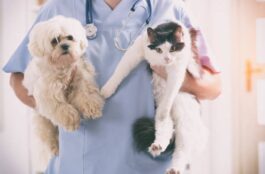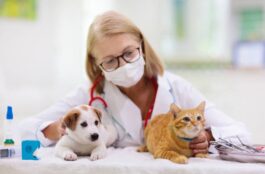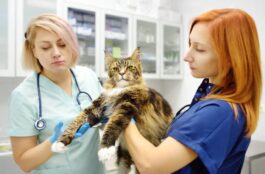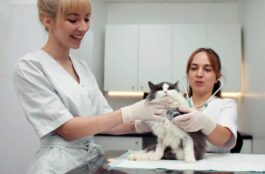
Choosing the proper diet for your furry little companions during their early life stages ensures they grow healthy, strong, and lively. Puppies and kittens require a unique blend of nutrients to support their rapid growth and development. Today, we’re exploring the best diet for these adorable animals. Whether you’re a seasoned pet owner or a first-timer, understanding the dietary needs of your pets is critical.
What Are the Nutritional Needs of Puppies and Kittens
Puppies and kittens are not just miniature versions of dogs and cats; they have unique nutritional requirements. They need diets rich in protein, fats, vitamins, and minerals during their growth phase. High-quality diets fuel their energy levels and support the development of strong bones, muscles, and immune systems.
-
Protein: Essential for building body tissues. Make sure it’s the number one ingredient in their food.
-
Fats: Provides energy and assists in brain development. Look for foods with DHA, an essential omega-3 fatty acid.
-
Calcium: Crucial for strong teeth and bones.
-
Vitamins and minerals: Supports overall health and development.
How to Choose the Best Food for Your Fur Babies
1. Start with Species-Specific Foods
Always choose a diet specifically designed for puppies or kittens. These foods are formulated to cater to their unique nutritional needs during the critical growth phase. Avoid feeding puppy food to kittens and vice versa, as this can lead to nutritional imbalances.
2. Check the Labels Carefully
Not all pet foods are created equal. When selecting a diet for your pets, scrutinize the ingredients list. High-quality animal protein should be at the top of the list, followed by wholesome, easily digestible carbohydrates and healthy fats. Avoid foods with fillers, artificial colors, flavors, and preservatives.
3. Consider Wet and Dry Foods
Offering a mix of wet and dry foods can benefit puppies and kittens. Wet food helps keep them hydrated and is often more palatable. Dry food, on the other hand, promotes oral health by reducing plaque accumulation. Consult with a veterinarian to determine the best mix for your pet.
Frequently Asked Questions About Puppy and Kitten Diets
1. Can Puppies and Kittens Eat Adult Food?
Feeding adult food to puppies and kittens is not recommended. Adult food lacks the essential nutrients young animals need to grow, which can lead to developmental issues.
2. How Often Should They Eat?
Frequent, small meals are ideal. Puppies usually require three to four meals daily, and kittens require up to four or five. This can vary based on the breed and size, so it’s wise to follow the recommendations of a professional, particularly for specialized diets.
3. What About Supplements?
In most cases, a well-balanced commercial diet for puppies and kittens will provide all the necessary nutrients. Supplements can lead to nutrient imbalances if not used correctly, so they should only be added under veterinary guidance.
Common Mistakes to Avoid in Feeding Puppies and Kittens
Regarding the nutritional care of puppies and kittens, some common pitfalls can impede their growth and health. Overfeeding is a typical issue, leading to obesity and its associated health problems. Additionally, relying too heavily on treats can unbalance their diet. It’s essential to focus on providing a balanced, species-appropriate diet and to avoid table scraps, which can be harmful or even toxic.
Remember, their nutritional requirements will change as your puppy or kitten grows. Regular check-ups and consultations can ensure their diet evolves to meet their changing needs. Additionally, should any health concerns related to diet arise, these professionals are well-equipped to handle emergency vet appointments, ensuring your furry family member receives the care they need when they need it most.
Professional Advice in Your Pet’s Diet
Selecting the right food for your puppy or kitten can sometimes be daunting. That’s where professionals come in. Veterinary professionals, such as those at places like puppy and kitten care at Sango Veterinary Hospital, are invaluable resources who can provide personalized diet recommendations based on your pet’s specific needs, health status, and growth phase.
Special Considerations for Homemade and Raw Diets
Some pet owners opt for homemade or raw diets, believing they offer more natural and healthier options. While these diets can provide good nutrition, they also require much knowledge, preparation, and caution to ensure they meet your pet’s nutritional needs. If you’re considering this route, it’s crucial to consult with a veterinarian who can guide you in preparing a balanced diet and may suggest incorporating comprehensive veterinary diagnostic services to monitor your pet’s nutritional health over time.
Final Thoughts
The best diet for your puppy or kitten supports their growth, health, and vitality. By understanding their unique nutritional needs, choosing high-quality, age-appropriate foods, and seeking the advice of veterinary professionals, you can set your new companion on the path to a long, healthy life. Remember, the care you put into their diet during these formative months lays the foundation for their well-being for years.


